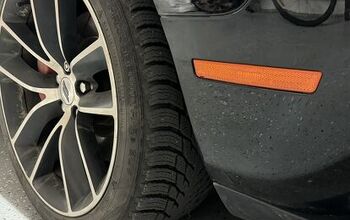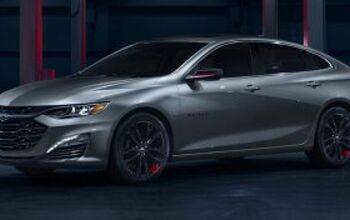Stuff We Use: Electric Ratchets

On our never-ending quest to improve this place by listening to feedback from the B&B, we are taking a new tack with these product posts, choosing instead to focus on items we have actually used or purchased with our own meagre income. After all, if we’re giving you the truth about cars, we ought to give you the truth about car accessories.
Tucking into a DIY job out in the garage can be both a good and bad thing – it only takes one snapped bolt to turn a 30-minute job into a three-day ordeal.
That’s why we’re evangelists for having the correct tools on hand. Trying to wrest a stubborn bolt with tools which are simply too small or ineffective for the job can be a headache at best or a minor crisis at worst. Going to town with handy gear like an electric ratchet can speed up a repair and potentially make life a lot easier.
Or, it’ll simply snap that rusty bolt head off with greater zeal. We wish you good luck and hope that’s not the case for you.
Electric ratchets have become a great deal more common in DIY toolboxes over the last few years, thanks in no small part to huge advancements in battery technology. It wasn’t too long ago that most tools of this type were ill-suited for battery power, choosing to run out of juice far too quickly (and generally at the colossally wrong moment) or simply didn’t provide the torque with which to perform any meaningful work.
Fortunately, much has changed. Well-known brands like Milwaukee have been steadily upping their game in this arena and currently have a broad selection of battery-powered tools which are actually worth more than the carboard box in which they are shipped. The electric ratchet linked here for that particular brand proved its worth in our hands, making quick work of rusty fasteners when replacing the front hub spindles on a decade-old Hyundai Elantra.
And, yes – we did one side of the car with hand tools and used the Milwaukee on the other to get back-to-back reference points. The job was indeed easier overall with the electric ratchet, removing most of the easier-to-access bolts in jig time compared to the several ugga-duggas it took to free equivalent ones on the other side of the car. Could the job have been done without it? Sure. Was the job a mite easier with the electric ratchet? Most definitely.
Anyone blessed with the gift of sight will have recognized that the head on these electric ratchets are a bit bulky, meaning any fasteners in tight spots will likely require hand tools to remove instead of this unit. In our experience, the tool works just fine with both silver-hued traditional sockets and the more robust sockets intended for use on a robust air gun. Of course, it is much better and safer to use the latter if you can, lest a poor-quality socket shatter itself to smithereens under the duress of a power tool. Wear yer eye protection, the lawyers are exhorting us to say.
Experience with less expensive off-brand electric ratchets is all over the map, with some exhibiting the build quality of a straw house and some working robustly for about ten minutes before giving up the ghost entirely. In fact, more than one type of tool has failed in such a manner in our testing, leading us to point at low bidder economics and the suggestion that some off-brand companies simply design a tool, test it once, then send it. In terms of electric ratchets, this does seem to be a product in which one gets for what they’ve paid.
As planned, this series of posts will continue to focus on items we’ve actually used and bought with our own money. We hope you found this one helpful.
[Images: Manufacturers]
Become a TTAC insider. Get the latest news, features, TTAC takes, and everything else that gets to the truth about cars first by subscribing to our newsletter.

Matthew buys, sells, fixes, & races cars. As a human index of auto & auction knowledge, he is fond of making money and offering loud opinions.
More by Matthew Guy
Latest Car Reviews
Read moreLatest Product Reviews
Read moreRecent Comments
- Paul To this point the only time I've heard 'brass monkey' is as part of the phrase 'cold enough to freeze the balls of a brass monkey'. What the hell is the connection to a vastly overpriced SUV?
- Lou_BC The good ol' days where men pulled wrenches and had the knuckle scars to prove it ;)
- Lou_BC Will crawl up a mountain or bounce through a mud hole? Not interested.
- Jeff I actually like this but the price is at least 20k too high for it to be a sales success along with needing more range.
- Oberkanone Can't think of a time I named a machine. C30 is a great design aesthetic IMHO.




































Comments
Join the conversation